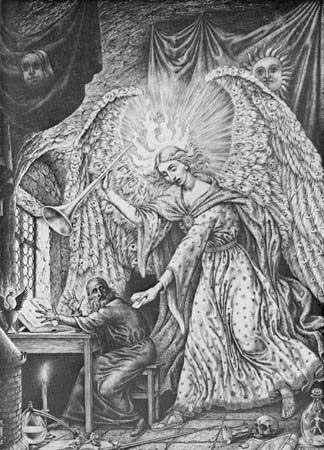You Are Not Your Eyes
"Those who have reached their arms into emptiness are no longer concerned with lies and truth, with mind and soul, or which side of the bed they rose from. If you are still struggling to understand, you are not there. You offer your soul to one who says, “Take it to the other side.” You’re on neither side, yet those who love you see you on one side or the other. You say Illa, “only God,” then your hungry eyes see you’re in “nothing,” La You’re an artist who paints both with existence and non. Shams could help you see who you are, but remember, You are not your eyes." from " The Book of Love " by Jalāl ad-Dīn Mohammad Rūmī ...in truth, OdiliaCarmen
